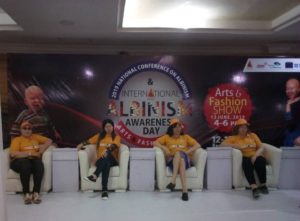Dr Progress Oyegbeda, the Chief Medical Director, Clear Vision Eye Clinic in Bayelsa, has advised patients suffering from albinism to use tinted glasses or low vision glasses under the sun.
Oyegbeda told the News Agency of Nigeria (NAN) on Thursday in Benin that in ocular albinism, only the eyes are affected, while the skin and hair color have normal melanin.
The optometrist spoke against the background of the International Albinism Awareness Day marked annually on June 13.
Oyegbeda defined albinism “As an inherited condition,which affects the eyes and skin of some individuals, and only the eyes of others.
“The theme:”Still Standing Strong” is to encourage them that they are not standing alone and also to show them love.
READ ALSO:Group tasks 9th assembly on affordable housing legislations
“The condition results from the body’s inability to produce normal amounts of a pigment called melanin.
“This lack of pigment causes reduced visual acuity (central vision) to varying degrees, but patients generally have good peripheral vision,” he said.
He said that most people with albinism often have pale skin, eye conditions and are sensitive to the sun, adding that no cure exists, but skin could be protected and eye conditions treated.
Oyegbeda said the symptoms of albinism involve skin, hair, and eye color and vision.
He said the most recognisable form of albinism results in white hair and very light-coloured skin compared with other siblings.
He identified the causes of albinism as a mutation in one of the genes, adding that different types of albinism can occur, based mainly on which gene mutation caused the disorder.
“The mutation may result in no melanin at all or a significantly reduced amount of melanin,” he said.
The optometrist mentioned types of albinism to include: Oculocutaneous albinism (OCA), Ocular albinism and albinism related to rare hereditary syndromes.
He explained that if just one parent has the gene and the other parent has a normal pigment gene, their children will not have oculocutaneous albinism,but each child will have a one in two chance of being a “carrier” of an albinism gene.(NAN)


